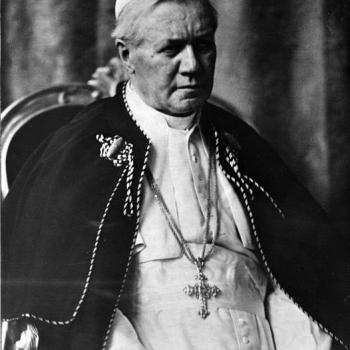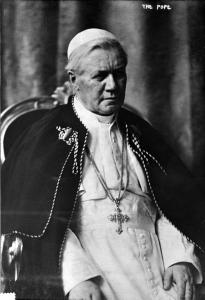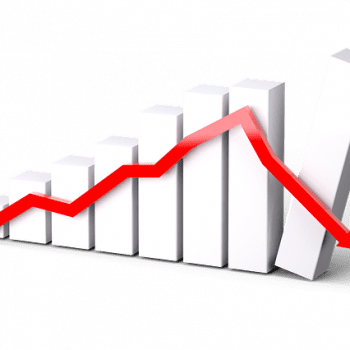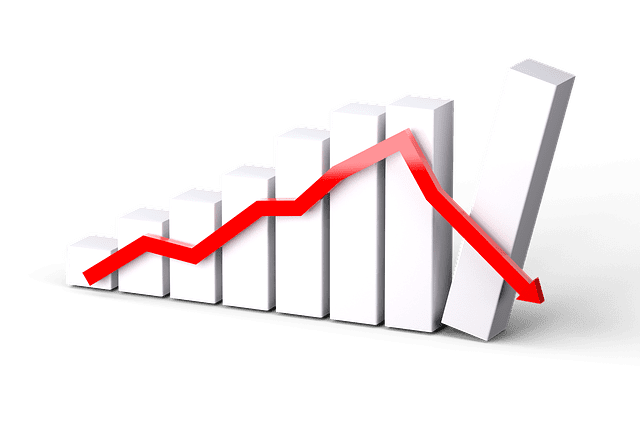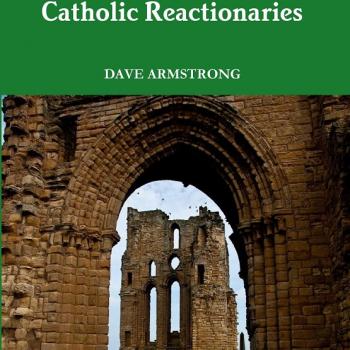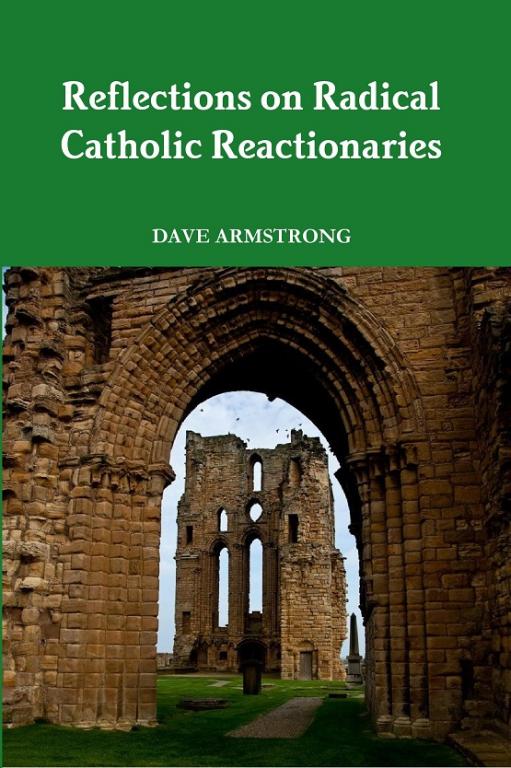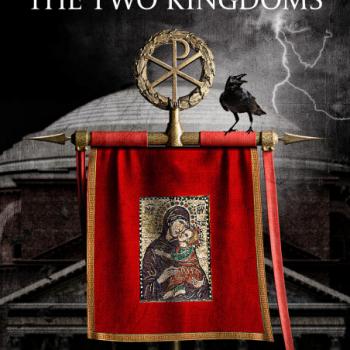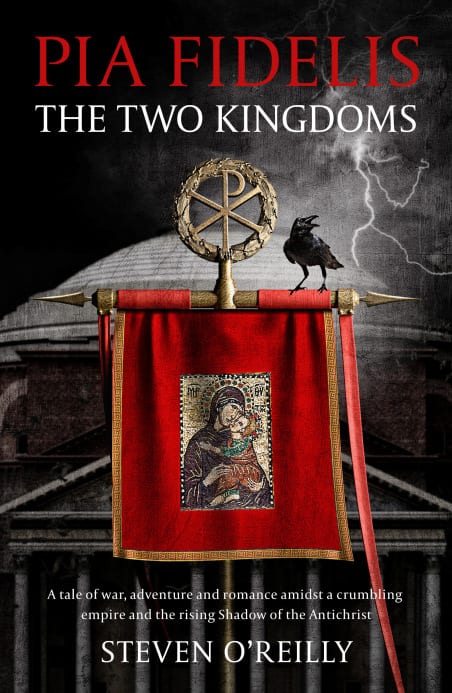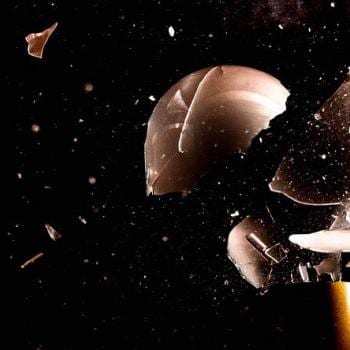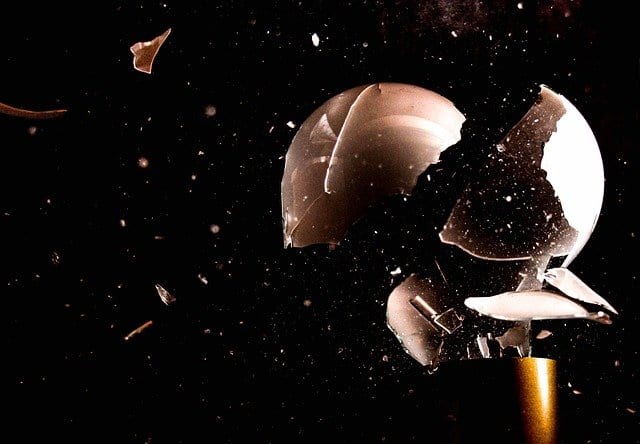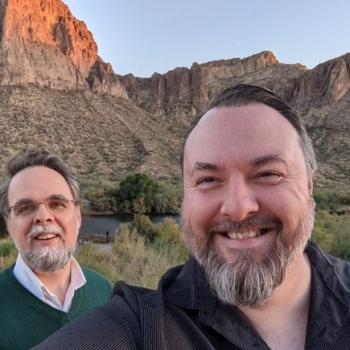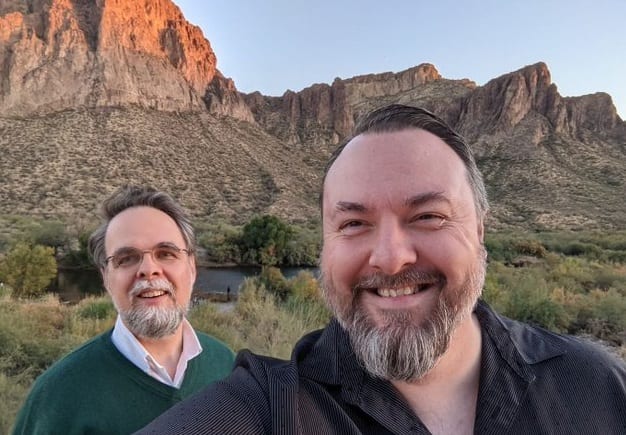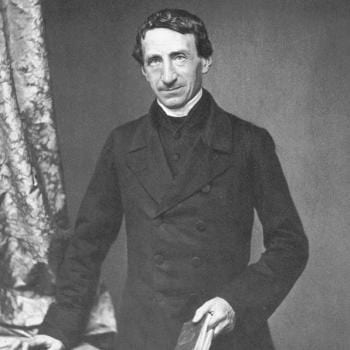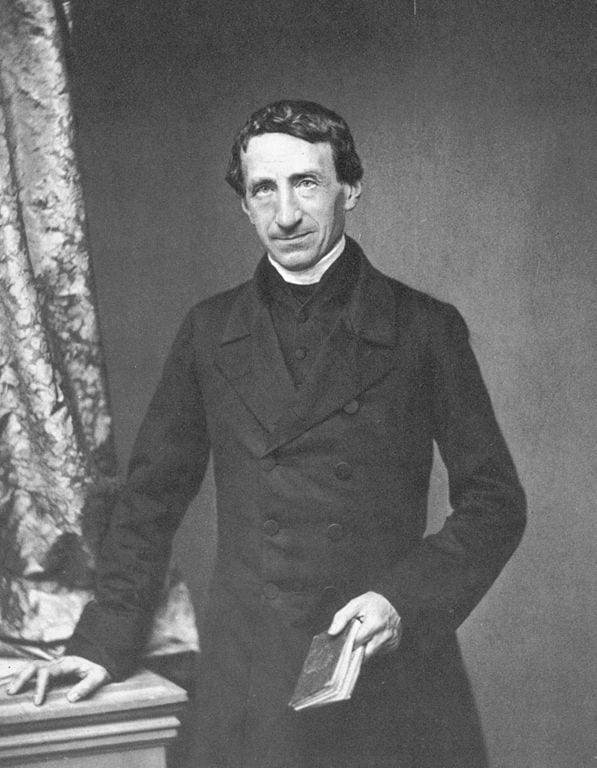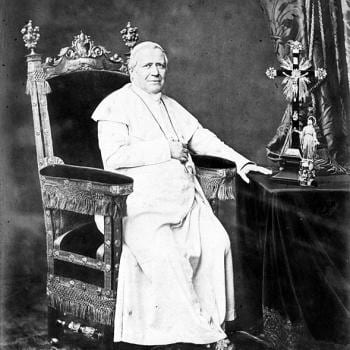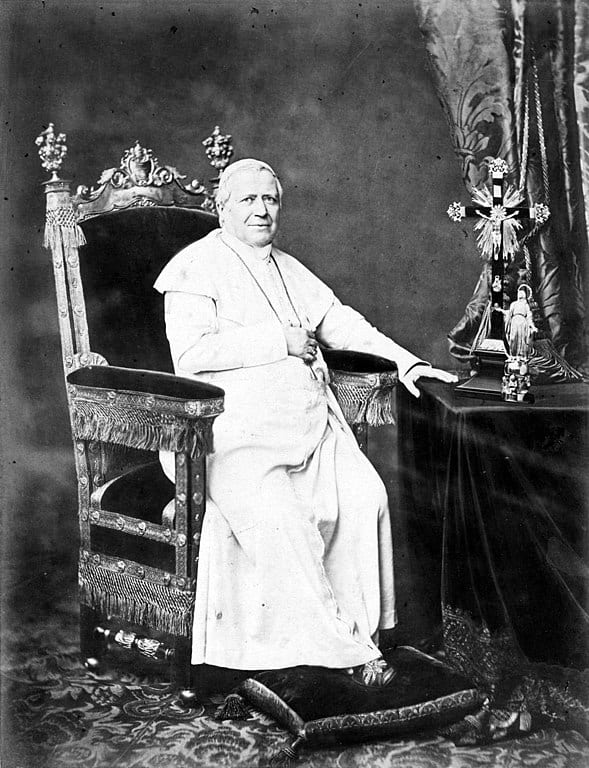The “hit piece” on The Catholic Monitor web page (extreme reactionary; possibly sedevacantist or “Benevacantist”) against myself and Mike Lewis of the Where Peter Is website (“Might Francis Catholics be ‘Proximate to Heresy’?”: 9-13-22) is atrocious. My first impulse was to ignore it as absurd and flat-out unserious and laughable, but the falsehoods in it are so outrageous, that I suppose I ought to address it, since there are more than enough people out there who will take anything they hear or read as Gospel TRVTH and believe this sort of unsubstantiated slop.
I also reply — it should be said — far more for the sake of truth than for my own personal sake (I am insulted on a weekly basis: that’s of little concern to me). Falsehood and lies are not good. We all know where they come from. They harm the people who promulgate them far more than the recipients. Thus, it’s actually an act of charity to correct this sort of massive calumny. The article also (groundlessly) goes after St. John Henry Cardinal Newman and the First Vatican Council, so I am in very good company.
We teach and define that it is a dogma divinely revealed that the Roman pontiff when he speaks ex cathedra, that is when in discharge of the office of pastor and doctor of all Christians, by virtue of his supreme Apostolic authority, he defines a doctrine regarding faith or morals to be held by the universal Church, by the Divine assistance promised to him in blessed Peter, is possessed of that infallibility with which the divine Redeemer willed that his Church should be endowed in defining doctrine regarding faith or morals, and that therefore such definitions of the Roman pontiff are of themselves, and not from the consent of the Church, irreformable.
[Prologue] And in order that the Episcopate also might be one and undivided, and that by means of a closely united priesthood the multitude of the faithful might be kept secure in the oneness of faith and communion, He set Blessed Peter over the rest of the Apostles, and fixed in him the abiding principle of this twofold unity and its visible foundation, in the strength of which the everlasting temple should arise, and the Church in the firmness of that faith should lift her majestic front to heaven. And seeing that the gates of hell with daily increase of hatred are gathering their strength on every side to upheave the foundation laid by God’s own hand, and so, if that might be, to overthrow the Church: We, therefore, for the preservation, safe keeping, and increase of the Catholic flock, with the approval of the Sacred Council, do judge it to be necessary to propose to the belief and acceptance of all the faithful, in accordance with the ancient and constant faith of the universal Church, the doctrine touching the institution, perpetuity and nature of the sacred Apostolic Primacy, in which is found the strength and solidity of the entire Church; and at the same time to proscribe and condemn the contrary errors so hurtful to the flock of Christ. [“proscribe with sentence of condemnation the contrary erroneous opinions so detrimental to the Lord’s flock”: p. 610: D #3052]
[Chapter 3] And since, by the divine right of apostolic primacy, one Roman Pontiff is placed over the universal Church, We further teach and declare that he is the supreme judge of the faithful, and that in all causes the decision of which belongs to the Church recourse may be had to his tribunal, but that none may reopen the judgement of the Apostolic See, than whose authority there is no greater, nor can any lawfully review its judgement. [“the judgment of the Apostolic See, whose authority is unsurpassed, is not subject to review by anyone; nor is anyone allowed to pass judgment on its decision”: p. 613: D #3063]
Wherefore they err from the right path of truth who assert that it is lawful to appeal from the judgements of the Roman Pontiffs to an Œcumenical Council, as to an authority higher than that of the Roman Pontiff.
[Chapter 4] And because the sentence of our Lord Jesus Christ cannot be passed by, who said, ‘Thou art Peter, and upon this rock I will build My Church,’ these things which have been said are proved by events, because in the Apostolic See the Catholic religion has always been kept undefiled, and her well-known doctrine has been kept holy. [“. . . has always been preserved immaculate and sacred doctrine honored”: p. 614: D #3066] Desiring, therefore, not to be in the least degree separated from the faith and doctrine of this See, we hope that we may deserve to be in the one communion, which the Apostolic See preaches, in which is the entire and true solidity of the Christian religion. . . .
To satisfy this pastoral duty, our predecessors ever made unwearied efforts that the salutary doctrine of Christ might be propagated among all the nations of the earth, and with equal care watched that it might be preserved genuine and pure where it had been received. Therefore the bishops of the whole world, now singly, now assembled in synod, following the long established custom of Churches and the form of the ancient rule, sent word to this Apostolic See of those dangers especially which sprang up in matters of faith, that there the losses of faith might be most effectually repaired where the faith cannot fail. [“where the faith cannot suffer impairment, the injuries to the faith might be repaired”: p. 615: D #3069] . . .
For the Holy Spirit was not promised to the successors of Peter, that by His revelation they might make known new doctrine, but that by His assistance they might inviolably keep and faithfully expound the revelation or deposit of faith delivered through the Apostles. And indeed all the venerable Fathers have embraced and the holy orthodox Doctors have venerated and followed their apostolic doctrine; knowing most fully that this See of Saint Peter remains ever free from all blemish of error, according to the divine promise of the Lord our Saviour made to the Prince of His disciples: “I have prayed for thee that thy faith fail not; and when thou art converted, confirm thy brethren.” [“this See of Peter always remains untainted by any error . . .”: p. 615: D #3070]
This gift, then, of truth and never-failing faith was conferred by heaven upon Peter and his successors in this Chair, that they might perform their high office for the salvation of all; that the whole flock of Christ, kept away by them from the poisonous food of error, might be nourished with the pasture of heavenly doctrine; that, the occasion of schism being removed, the whole Church might be kept one, and resting in its foundation, might stand firm against the gates of hell.
(3) With regard to the theory of the development of Christian Doctrine, two questions entirely distinct from one another have to be considered in relation to Newman: (a) is his theory admissible according to the principles of Catholic Theology, and (b) is it covered, or touched in any wise, by the condemnations of the recent Encyclical.
The first of these questions I leave on one side now, venturing merely to express, with all submission, my personal opinion, little as it is worth, that in its broad outlines it is thoroughly sound and orthodox, and most serviceable for the interpretation of the facts of the history of dogma.
As to the second, I cannot see how there can be room for doubt. Newman’s whole doctrine was not only different from that of the Modernists, but so contrary to it in essence and fundamental principle, that I cannot conceive how, by any implication, it could be involved in their condemnation. Nothing less than an explicit statement by the supreme authority of the Holy See would convince me to the contrary. I see no common ground in both systems. The word development is the only thing which they hold in common. They do not mean the same thing by Christianity, by dogma, by religion, by Church. They do not start from the same first principles, and consequently they are as separate as the poles.
Pope St. Pius X himself – in the same year: 1908 – wrote a letter to Bishop O’Dwyer, thoroughly approving of his pamphlet. The original Latin of Pope St. Pius X’s letter is online at the Newman Reader, along with the English translation (I have added paragraph breaks):
English translation, provided by Michael Davies, also included in Davies’ Lead Kindly Light: The Life of John Henry Newman, Neumann Press, 2001.
LETTER
In which Pope Pius X approves the work of the Bishop of Limerick
on the writings of Cardinal Newman.
To his Venerable Brother
Edward Thomas Bishop of LimerickVenerable Brother, greetings and Our Apostolic blessing. We hereby inform you that your essay, in which you show that the writings of Cardinal Newman, far from being in disagreement with Our Encyclical Letter Pascendi, are very much in harmony with it, has been emphatically approved by Us: for you could not have better served both the truth and the dignity of man. It is clear that those people whose errors We have condemned in that Document had decided among themselves to produce something of their own invention with which to seek the commendation of a distinguished person.
And so they everywhere assert with confidence that they have taken these things from the very source and summit of authority, and that therefore We cannot censure their teachings, but rather that We had even previously gone so far as to condemn what such a great author had taught. Incredible though it may appear, although it is not always realised, there are to be found those who are so puffed up with pride that it is enough to overwhelm the mind, and who are convinced that they are Catholics and pass themselves off as such, while in matters concerning the inner discipline of religion they prefer the authority of their own private teaching to the pre-eminent authority of the Magisterium of the Apostolic See.
Not only do you fully demonstrate their obstinacy but you also show clearly their deceitfulness. For, if in the things he had written before his profession of the Catholic faith one can justly detect something which may have a kind of similarity with certain Modernist formulas, you are correct in saying that this is not relevant to his later works. Moreover, as far as that matter is concerned, his way of thinking has been expressed in very different ways, both in the spoken word and in his published writings, and the author himself, on his admission into the Catholic Church, forwarded all his writings to the authority of the same Church so that any corrections might be made, if judged appropriate.
Regarding the large number of books of great importance and influence which he wrote as a Catholic, it is hardly necessary to exonerate them from any connection with this present heresy. And indeed, in the domain of England, it is common knowledge that Henry Newman pleaded the cause of the Catholic faith in his prolific literary output so effectively that his work was both highly beneficial to its citizens and greatly appreciated by Our Predecessors: and so he is held worthy of office whom Leo XIII, undoubtedly a shrewd judge of men and affairs, appointed Cardinal; indeed he was very highly regarded by him at every stage of his career, and deservedly so.
Truly, there is something about such a large quantity of work and his long hours of labour lasting far into the night that seems foreign to the usual way of theologians: nothing can be found to bring any suspicion about his faith. You correctly state that it is entirely to be expected that where no new signs of heresy were apparent he has perhaps used an off-guard manner of speaking to some people in certain places, but that what the Modernists do is to falsely and deceitfully take those words out of the whole context of what he meant to say and twist them to suit their own meaning.
We therefore congratulate you for having, through your knowledge of all his writings, brilliantly vindicated the memory of this eminently upright and wise man from injustice: and also for having, to the best of your ability, brought your influence to bear among your fellow-countrymen, but particularly among the English people, so that those who were accustomed to abusing his name and deceiving the ignorant should henceforth cease doing so.
Would that they should follow Newman the author faithfully by studying his books without, to be sure, being addicted to their own prejudices, and let them not with wicked cunning conjure anything up from them or declare that their own opinions are confirmed in them; but instead let them understand his pure and whole principles, his lessons and inspiration which they contain. They will learn many excellent things from such a great teacher: in the first place, to regard the Magisterium of the Church as sacred, to defend the doctrine handed down inviolately by the Fathers and, what is of highest importance to the safeguarding of Catholic truth, to follow and obey the Successor of St. Peter with the greatest faith.
To you, therefore, Venerable Brother, and to your clergy and people, We give Our heartfelt thanks for having taken the trouble to help Us in Our reduced circumstances by sending your communal gift of financial aid: and in order to gain for you all, but first and foremost for yourself, the gifts of God’s goodness, and as a testimony of Our benevolence, We affectionately bestow Our Apostolic blessing.
Given in Rome at St. Peter’s, on 10 March 1908, in the fifth year of Our Pontificate.
Pius PP. X


